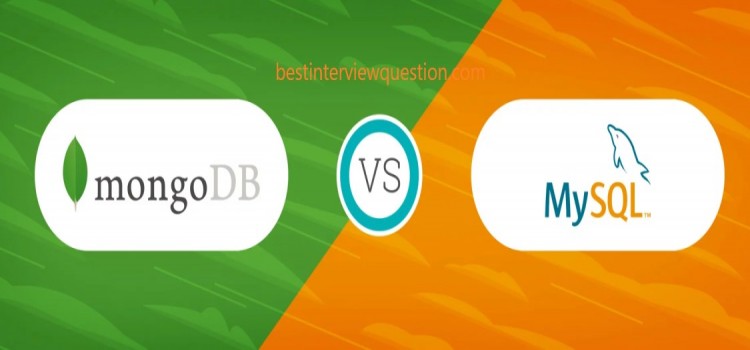What Is The Difference Between MySQL And MongoDB

Both MySQL and MongoDB are relational databases. Relational databases are used in almost all sectors of business and education nowadays. It is important to know which relational database will suit an organization best. The organizations should check all the aspects of the RDBMS they are going to use before they decide which is the best suitable for them.
What is MySQL?
MySQL is an RDBMS (Relational Database Management System) which is the most popular among open-source database systems. It is developed and distributed all around the world by Oracle Corporation. MySQL also stores data in tables by use of SQL (Structured Query Language) for accessing the database just like other relational systems. This information is important to know if you are looking for any MySQL interview questions. In MySQL, the database schema can be predefined based on the requirements of the organizations and the rules can be set up that will help in governing the relationships between the fields in the tables. Any type of change can induce the need for a migration procedure that can help the users take the database offline or can significantly reduce the performance of the application.
What is MongoDB?
This is a relational database that is also open-source but it does not store its data in a non-tabular database. It is developed by MongoDB, INC. In MongoDB, the data is stored as documents in binary representation that is known as BSON (Binary JSON). For fast query access through the MongoDB query language, related information is stored together. The documents are self-describing so there is no need to declare the structure of the documents to the systems, the fields can be different in all the documents. This is mostly asked MongoDB interview Questions. A new field can be created without affecting all other documents in the collection, it can be done even without updating a central system catalog without taking the system offline. To enforce data governance control over each collection, schema validation can be used.
MySQL vs MongoDB
| Basis of comparison | MongoDB | MySQL |
|---|---|---|
| 1. Representation of Data | In MongoDB, the data representation is done through a collection of JSON documents. | In MySQL, data representation is done with the help of tables and rows. |
| 2. Query language | In MongoDB, there is no need for parsing. It is object-oriented which means a MongoDB document can be passed which explains the query. | MySQL uses Structured Query language which exposes the database to injection attacks. |
| 3. JOIN operation | MongoDB does not support JOIN command and joint operations. It can support multidimensional data types such as arrays. | In MySQL, JOIN operation can be done which is mainly used to perform queries across several tables in a single database. |
| 4. Embedding | In MongoDB, there exists one array of comments and collections of posts within one post. It does not support document embedding. | MySQL enables embedding of data which means one document can consist of another document. |
|
Related Article: Latest version PHP 7.4 Released with Advanced Features
|
||
| 5. Atomic transactions | Atomic transactions are not supported in MongoDB. The single operation is atomic. | In MySQL, the atomic transaction is fully supported and the user can easily roll back in case of a single operation. |
| 6. Schema definition | While working on MongoDB, there is no need for schema definition. All the user needs is to drop the comments as per conditions. | Tables and rows must be defined before storage in MySQL. The same columns are shared in all rows in a table. |
Summing IT Up
The main query of recruiters among a lot of questions in MySQL interview questions and MongoDB interview questions is what the database is better. When it comes to what database to use, it totally depends upon the type of data the user has. Besides that, people are more inclined towards MongoDB because of its immense functionalities and easy to use implementations.
